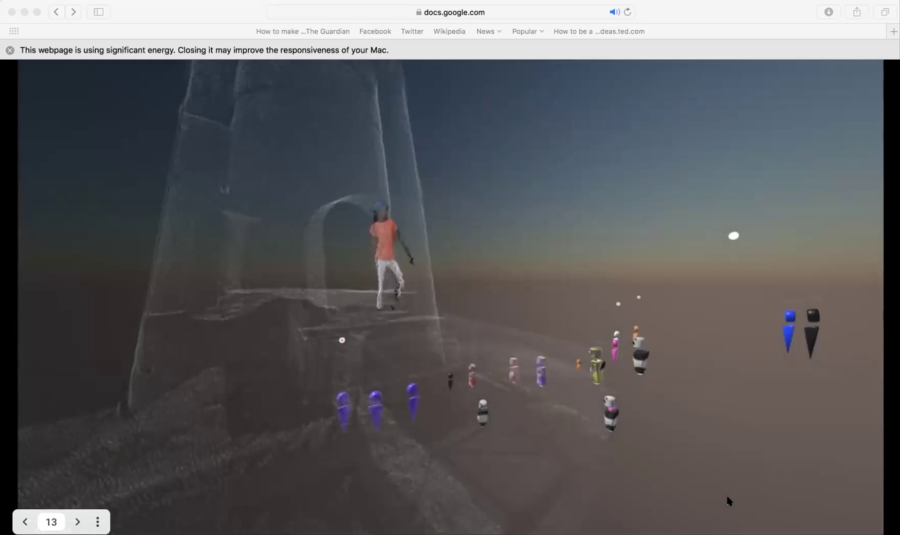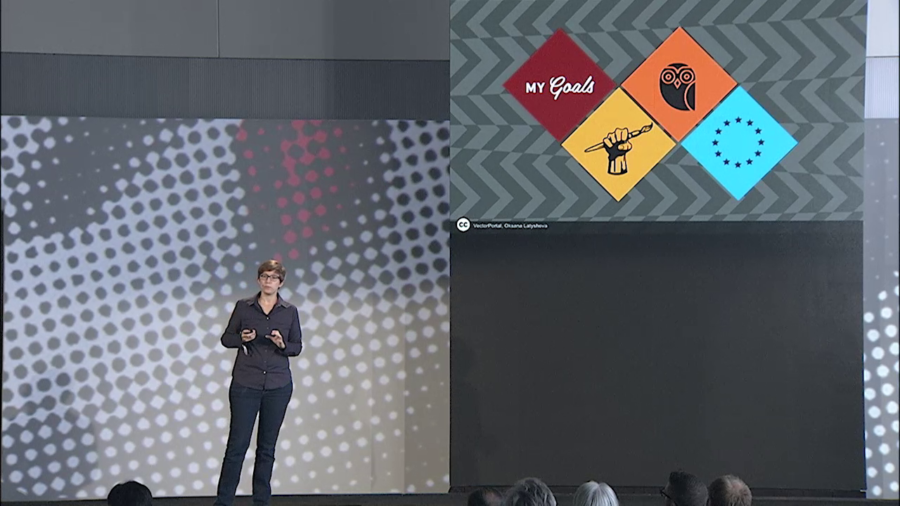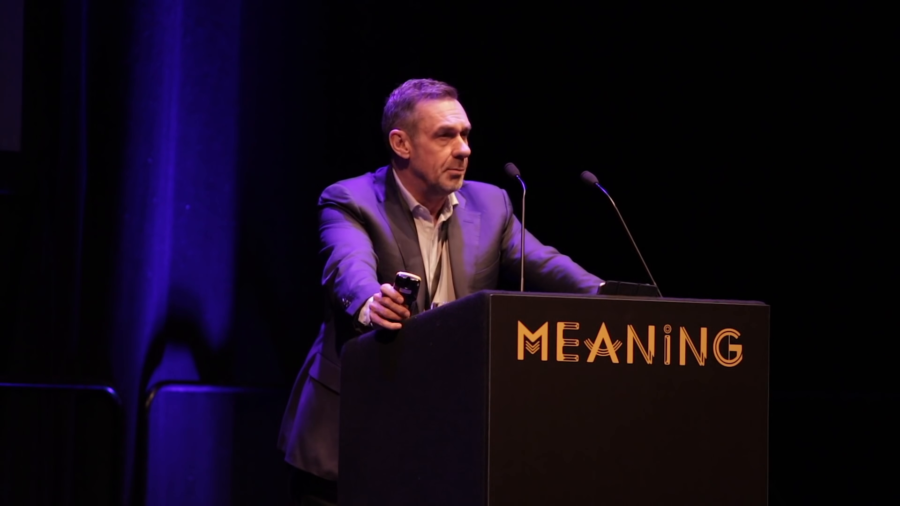We are envisioning low-cost open hardware, open source software, that would allow artists to create virtual performances in Mozilla Hubs, which is a social virtuality platform. And throughout this process that was very much spearheaded by my artistic creation of performance in Mozilla Hubs, we came up with an educational program that would allow any artist to create their own live volumetric performance.
Archive (Page 2 of 5)
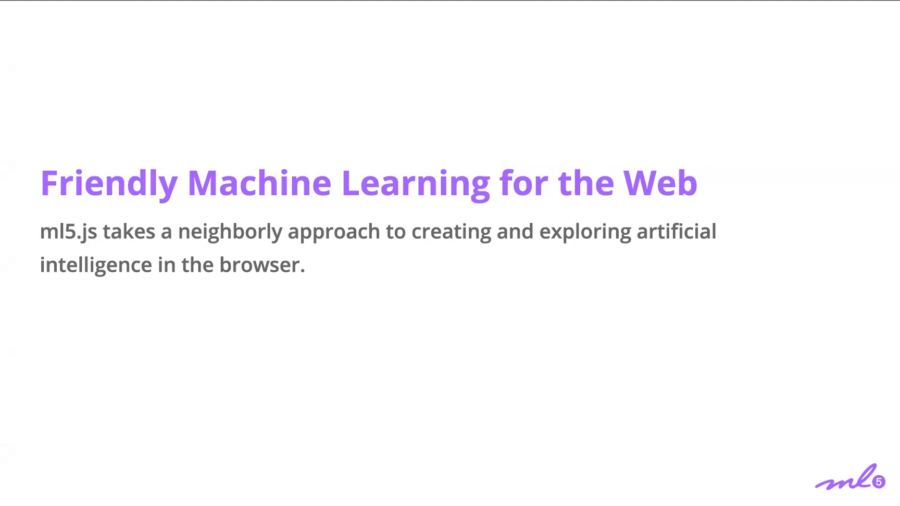
I’ve found that identifying ways to be a part of shared collaborative and community projects that produce knowledge or build infrastructure that has been influential and instructive for me has connected me to a lot of really amazing people and ideas. And so, most relevant to this presentation I want to talk about how my more recent work as an open source maintainer has actually helped me learn more about how to be present in communities that are important to me.
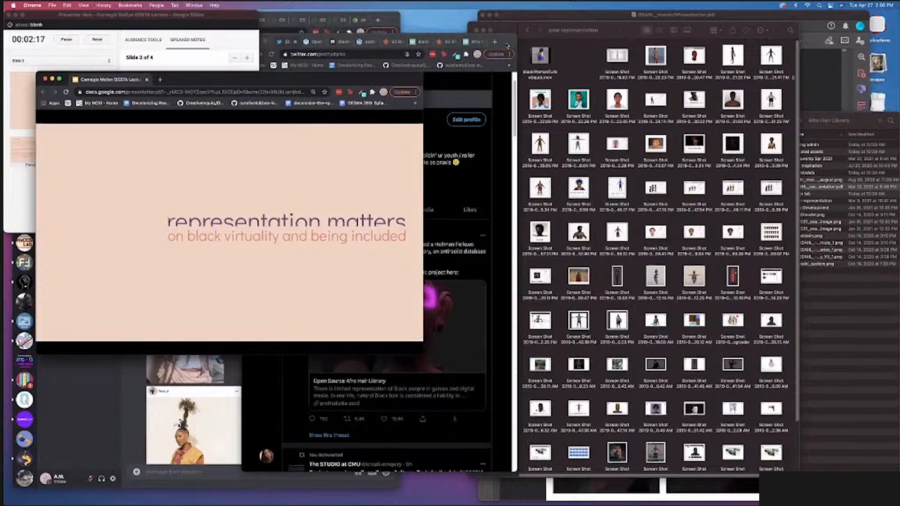
I wanted to talk specifically about visual representation and inclusivity, and really trying to problematize the way that we conceive of inclusivity as an inherent good. This is not a sort of “hashtag representation matters” talk, it is a talk that’s thinking about you know, matters around representation and how to do that in a way that is non-instrumentalizing and non-exploitative.
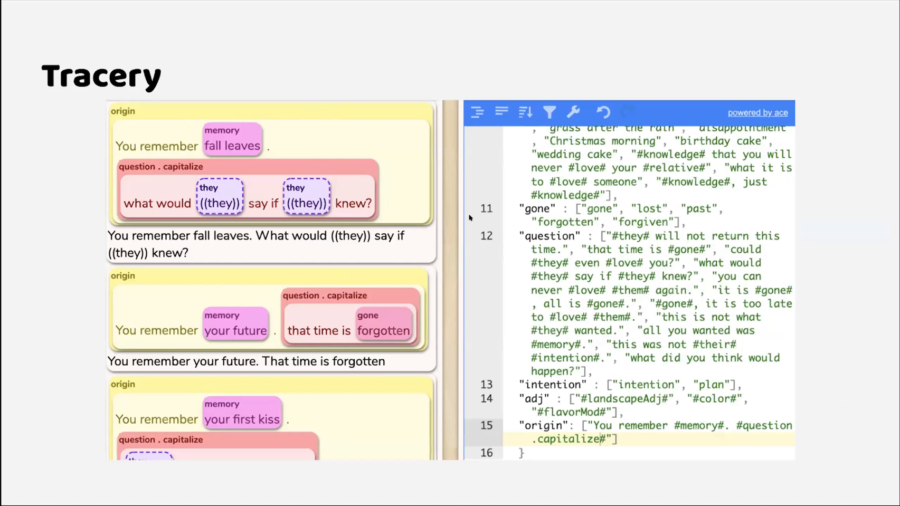
One of the really amazing things about Tracery is that I made it when I had just learned Javascript. It managed to be like, mostly bug-free. But because it’s a very small library and it doesn’t do anything terribly complex, it ended up being able to run largely without me. And so it spawned this massive community that is completely distributed.
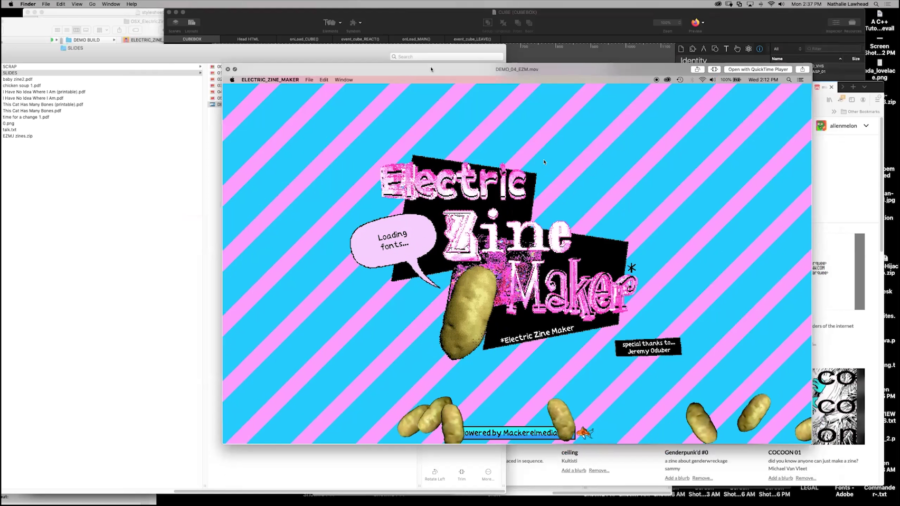
If you do anything generative on computers and don’t know what to do with whatever you just made, turning that into a little tool that people can use to do stuff like tweak values, play around with some visuals, and just export whatever they make goes a long way. Coming from more of a game design angle, it’s easy to overthink interactivity and want to build on the systems in ways that get really complicated. If you look at tool design, often the opposite mindset is the most rewarding.
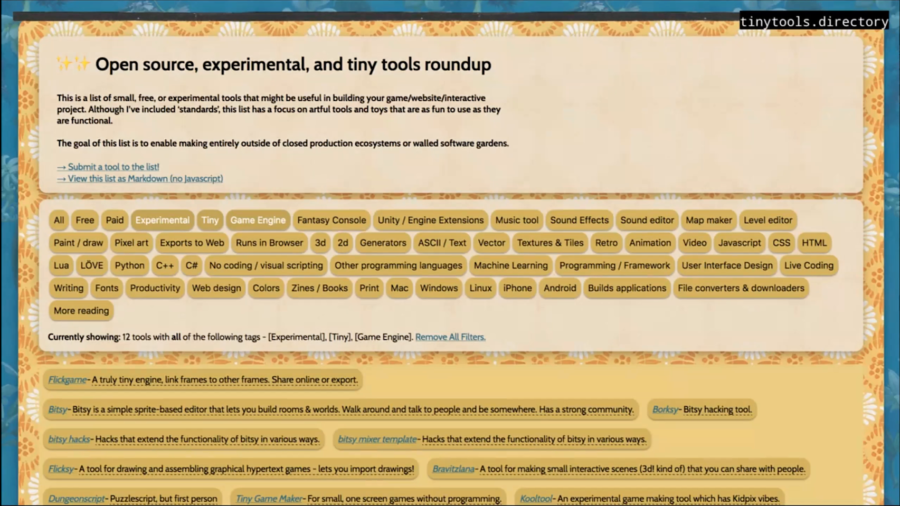
In general I work with data sets, “big data,” but with the full knowledge that this is only ever the lives and experiences of people bundled up and repackaged through processes angled for usefulness or at the very least posterity.
What I’ve seen as a founder of MoveOn is that we’ve become increasingly polarized. And in fact we have gotten to the point where we have separate…realities? when it comes to a whole raft of facts. And so how can we possibly make good decisions together when we don’t even share basic facts? You first have to have a relationship, and you have to have shared values.
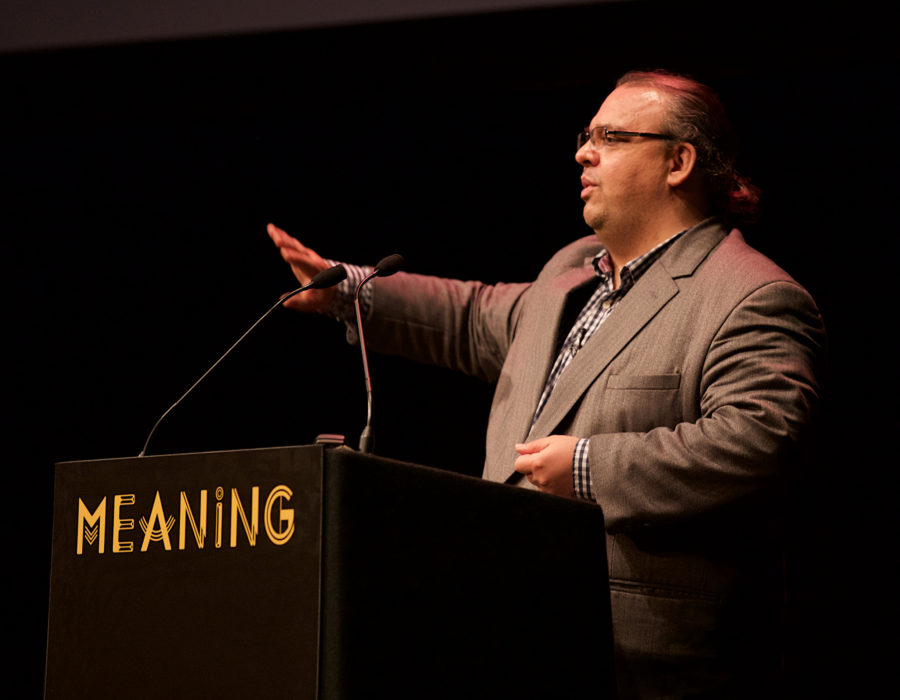
I was looking for the tools that you could use to solve global problems in an environment when the nation-state has turned out to be a very very ineffective set of machinery at all. So I’m going to talk a little bit about the technology. I’m going to talk a little bit about what it does and where it’s going. And then I’m going to try and tell a story about the kind of global long-term picture that we could get if this stuff actually works.

